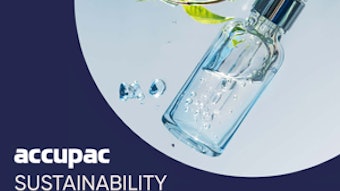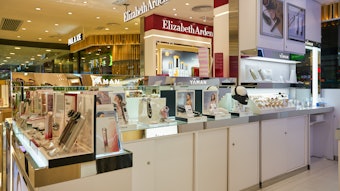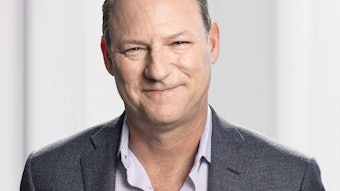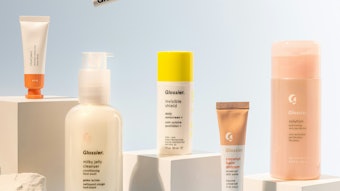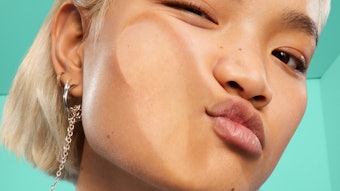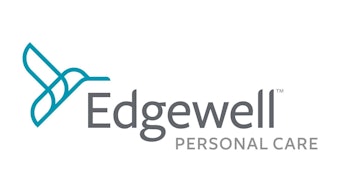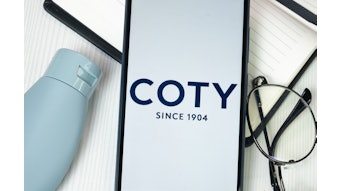
"I am proud to note that we are a key driver of the U.S. economy with nearly $60 billion in U.S. manufacturing, 4.6 million U.S. jobs and directly contributing over $300 billion to our nation’s GDP," says Tom Myers, CEO and president of PCPC.
Pixel-Shot at Adobe Stock
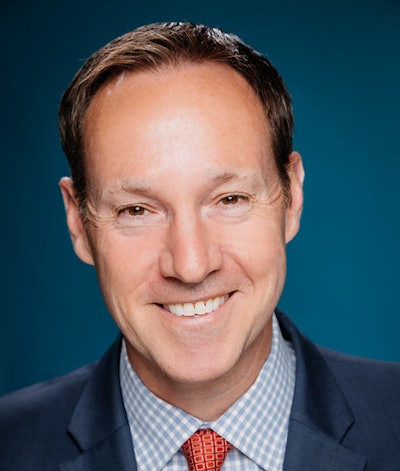 "Our industry has long been a leader in innovation–making significant investments in scientific advancements to ensure safe, high-quality products that evolve with consumer needs and technological advancements," says Myers. "Many companies are leveraging AI and other advanced technology tools to offer, among other things, customized skin care and makeup recommendations to meet consumers’ unique skin types, tones and concerns."
"Our industry has long been a leader in innovation–making significant investments in scientific advancements to ensure safe, high-quality products that evolve with consumer needs and technological advancements," says Myers. "Many companies are leveraging AI and other advanced technology tools to offer, among other things, customized skin care and makeup recommendations to meet consumers’ unique skin types, tones and concerns."The interview was held shortly before PCPC's 2025 Beauty Collective Summit, taking place February 18-20, 2025, at The Ritz-Carlton Key Biscayne in Miami, bringing together top executives, innovators, and thought leaders in the cosmetics and personal care industry.
This three-day event features interactive sessions focused on business innovation, the science of beauty, and regulation and compliance, offering attendees actionable tools, peer connections, and expert insights to navigate current challenges and shape the future of beauty.
Keynote speakers include presidential historian Doris Kearns Goodwin, sharing leadership lessons, and Sol Rashidi, a Fortune 100 executive, discussing AI-driven growth. The summit concludes with the presentation of the Madam C.J. Walker Award for Excellence in Diversity, Equity, and Inclusion, celebrating outstanding contributions to DEI in the beauty industry.
Interview: Tom Myers, president and CEO, PCPC
As the new U.S. administration takes over, how are your members preparing for/responding to trade tensions to minimize impacts?
Myers: One of our top priorities is to help preserve and strengthen the benefits of international trade for U.S. workers, businesses and consumers. We are working diligently to inform the U.S. Administration and Congress of U.S. trade policies' impact on the beauty and personal care products industry. It is critical they understand the value of our industry, which is one of few American manufacturing success stories.
I am proud to note that we are a key driver of the U.S. economy with nearly $60 billion in U.S. manufacturing, 4.6 million U.S. jobs and directly contributing over $300 billion to our nation’s GDP. We have also generated a yearly trade surplus and achieved the second largest net export balance of all U.S. manufacturing industries for nearly three decades. This success is primarily due to having open markets, which help companies develop and provide innovative products that consumers around the world trust and enjoy.
What do you see as the most promising opportunities provided by AI platforms in beauty/personal care?
Myers: Our industry has long been a leader in innovation–making significant investments in scientific advancements to ensure safe, high-quality products that evolve with consumer needs and technological advancements. Many companies are leveraging AI and other advanced technology tools to offer, among other things, customized skin care and makeup recommendations to meet consumers’ unique skin types, tones and concerns. We anticipate a continued upward trajectory in this area as technology and consumer interest evolve. In fact, Sol Rashidi, former chief data/analytics/AI officer for a Fortune 100 tech Fortune 100 company, will explore these opportunities in greater detail at our upcoming Beauty Collective Summit in Key Biscayne, Florida. She will share insights into how AI can set new ethical standards for efficiency and consumer satisfaction.
What are the top regulatory considerations on your radar?
Myers: At the federal level, the biggest development remains the implementation of the Modernization of Cosmetics Regulation Act (MoCRA). Although PCPC member companies historically have provided more product information than is required by law, MoCRA has further increased transparency of products and their ingredients. For example, cosmetics manufacturers must now list each product with the FDA, including its ingredients and where it is manufactured. By providing more access to information from manufacturers, consumers can make informed choices about the best products for themselves and their families. Everyone deserves the right to know what is in their products and to understand why those ingredients are used.
At the state level, we are focused on proposed regulations for packaging, as well as ingredient and trace element restrictions. As the voice for the beauty and personal care products industry, we stay engaged with regulators and trade coalitions to ensure safe products remain accessible to consumers.
In an era of low trust generally, how is the industry pursuing sustainability and science to ensure credibility?
Myers: Product safety and providing consumers with safe, effective and sustainable products are top priorities for the cosmetics and personal care products industry and our actions demonstrate this. For example, companies are marketing products only after ensuring every ingredient and finished product has been substantiated for safety. And PCPC supports these efforts by maintaining our knowledge center, cosmeticsinfo.org, with transparency in mind. This comprehensive database is developed for consumers and maintained by scientists and subject-matter experts. It contains science and safety information on cosmetics and personal care products in a digestible, comprehensible format. Consumers can learn how products work and obtain data to corroborate the safety and science behind commonly used ingredients. We share this information on social media platforms, during conferences and in community-based events to maximize reach.
And we are working diligently on the sustainability front as well. Many of our member companies have established and doubled down on a code of conduct for suppliers, which outlines expectations for behavior and practices related to child or forced labor, freedom of association and collective bargaining, nondiscrimination/non-harassment, health and safety, working hours, wages, treatment of workers and protection of the environment. These companies are also active in programs that define and promote expectations for the industry’s supply chain such as the Responsible Beauty Initiative, the Responsible Micra Initiative and the Roundtable on Sustainable Palm Oil.
We all recognize that business will only continue to prosper if they act responsibly toward consumers, employees, business partners and communities around the world where they operate and with respect for the environment.
Finally, what are you most optimistic about for the industry in 2025?
Myers: The cosmetics and personal care industry saw significant growth in sales and employment in 2022 (latest figures available). Our industry remains a key pillar of the U.S. economy—adding $82.3 billion in federal, state and local taxes. I am hopeful that this progress will continue. Most importantly, however, are the diverse group of women and men behind these numbers. They are steadfast in their commitment to our industry and provide valuable perspectives in areas such as research and development, product safety and sales. I am optimistic about how their contributions, their ideas, and their research will make a positive impact.
I am also excited about our reimagined annual meeting, the Beauty Collective Summit, this February 18-20. This event has been refreshed and rebranded to reflect the dynamic, diverse value chain of executives, influencers, scientists, and media that drive our industry's growth. With keynotes from figures like Presidential Historian Doris Kearns Goodwin and Olympic Cchampion Katie Ledecky, alongside focused tracks on AI, biotech innovation, counterfeits, and misinformation, the summit is sure to educate and inspire.
